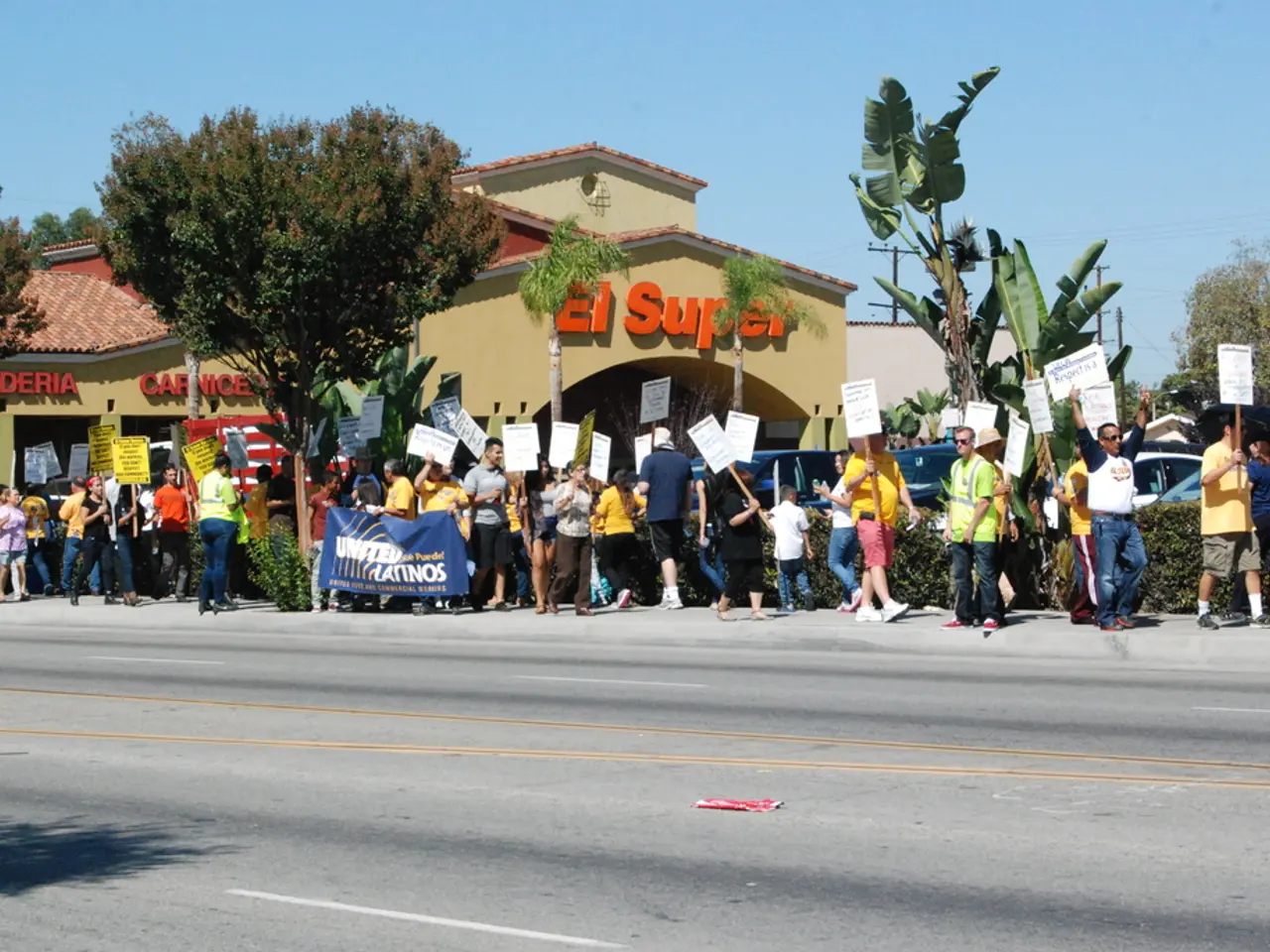Harvard University Initiates Data-Backed Discussions on Key National Topics through Polling Research
In the heart of America's educational landscape, Harvard University's polling initiatives have emerged as a gold standard, shaping policy-making at both national and local levels. Known for their transparency, accuracy, and reliability, these polls have become a crucial tool in the field of public opinion research.
Harvard's polling efforts, particularly through collaborations like the Harvard CAPS/Harris Poll, have significantly impacted U.S. policymaking by informing public and political discourse on key issues. These polls provide timely, detailed insights into Americans' opinions on topics that directly influence policy debates and legislative priorities.
One of the key ways Harvard's polling impacts policymaking is by informing policymakers about public sentiment. For instance, a recent Harvard Kennedy School poll showed Vice President Kamala Harris leading former President Trump by 31 points among young voters and revealed strong youth support for progressive policies. Such data help lawmakers gauge popular support or opposition for various proposals, shaping their policy approaches.
Another significant impact is shaping the political narrative and strategy. Poll results highlighting public approval or disapproval can influence party strategies and legislative negotiations. The 2025 Harvard CAPS / Harris Poll, conducted among registered voters, provides detailed trends on economic outlook and candidate approval, helping political actors adjust messaging and policy platforms accordingly.
Harvard's polling also supports evidence-based policymaking and civic engagement. The Ash Center promotes new ideas in civic engagement, leveraging polling insights to encourage democratic deliberation and voter participation. Policymakers rely on such data to design policies that resonate with constituents' values and needs.
Moreover, Harvard's polling influences public debates on critical health and social issues. For instance, polling conducted by Harvard Chan School revealed that 79% of Americans support routine childhood vaccine requirements amid measles outbreaks, providing strong backing for public health policies.
While Harvard's polling strongly informs policy discussions, it also interacts with political dynamics beyond polling data. For example, policy conflicts involving Harvard, such as opposition to endowment taxes proposed by Republican lawmakers, illustrate complex intersections of politics, economics, and education that Harvard's research and polling can illuminate but do not directly determine.
In the future, Harvard's polling initiatives plan to leverage emerging technologies for data collection and analysis and expand the scope of topics covered. The university's polling methods have evolved to incorporate advanced data analysis techniques, such as big data analytics and machine learning algorithms, and online polling to reach a broader and more diverse sample of respondents.
In conclusion, Harvard University's polling impacts U.S. policymaking primarily by providing trusted, rigorously collected data on public opinion that politicians, activists, and policymakers use to craft, adjust, and advocate for policies aligned with voter attitudes and societal priorities. These polls act as a bridge between public sentiment and political decision-making, influencing the direction and content of policy debates at the national level. They offer a nuanced perspective on the challenges and opportunities in society, contributing to a deeper understanding of social issues impacting society and serving as a crucial tool for policymakers, researchers, and the general public in navigating complex social issues.
- The transparency, accuracy, and reliability of Harvard University's polling have made it a valuable resource for public opinion research in the field of politics and general news.
- Informed by Harvard's polling data, political actors can adjust their messaging and policy platforms to reflect Americans' opinions on key issues and maintain public support.
- Aside from shaping policy debates, Harvard's polling is used in education-and-self-development contexts to encourage democratic deliberation and voter participation.
- Polling conducted by the Harvard Chan School revealed 79% of Americans support routine childhood vaccine requirements, contributing to evidence-based policymaking and informed public health decisions.
- Despite its powerful influence, Harvard's polling doesn't directly determine political outcomes or conflicts, as these can be influenced by complex intersections of politics, economics, and education.
- The university's polling initiatives aim to expand the scope of topics covered and leverage emerging technologies for data collection and analysis, ensuring their relevance in an ever-changing society.
- As the polls adopt advanced data analysis techniques like big data analytics and machine learning algorithms, they also incorporate online polling to reach a diverse sample of respondents.
- Informs public and political discourse on important news topics, with poll results providing timely and detailed insights into Americans' opinions and attitudes on various issues.
- The surveys and polling conducted by Harvard University act as a bridge between public sentiment and political decision-making, offering insights, trends, and analytics that contribute to a deeper understanding of social issues and informed policymaking.




